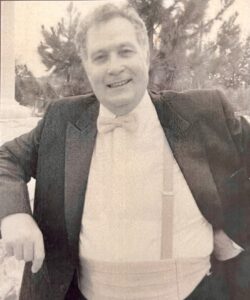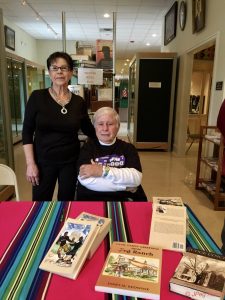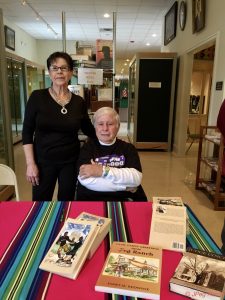
My grandfather Redwine was born in 1848 in Walls, Georgia. After the Civil War he traveled to Indian Country, married and had five children. After his first wife died young, he married my grandmother who was a widow with six children. Together they had seven more children, of which my father was next to the youngest. My grandfather was a Baptist minister who may have known the Bible but unfortunately was careless in his choice of pulpits. He was preaching to a camp meeting while standing on a buckboard hitched to a skittish horse that got spooked by grandpa’s vociferous sermon. The horse bolted, grandpa lost his balance, fell off, hit his head and died. He was buried on the spot by grandmother and the congregation. My father was eleven years old and in the third grade when he and his numerous siblings were forced to raise themselves and one another while grandmother held the family together.
My father left school at age eleven and went to work in the high-sulfur unregulated coal mines of what by then was the southeastern corner of the new state of Oklahoma. Breathing in the coal dust led to my father’s massive heart attack at age thirty-three and to his ever-tenuous hold on his health until his death at age fifty-nine. Dad did not have the benefit of instruction from his father, but learned life’s lessons from his older brothers. This circle of concern and love helped make Dad a wonderful and kind father and also caused him to believe it was natural for one’s older brothers to educate them.
With my siblings and myself this meant my older sister, born in 1937, helped Mom with the household while my brother, Philip, born in 1942, and I born, in 1943, were mentored by our older brother, C.E. Redwine, born in 1936. C.E. (Sonny to the family) was our guide and protector. Sonny was the most patient and encouraging teacher and coach. He taught Phil and me to fish, play baseball and appreciate music. Mainly he taught us to be curious, strive to be our best and love every second of life.
Sonny was an inexhaustible deep well of knowledge and had the unselfish gift of generosity to share it. He could play and teach instrumental music and sing, teach and conduct choral ensembles. C.E. led our sister Jane and Phil and me in our church choir. He formed and performed with numerous dance bands. He played his brilliant saxophone all over the world with the United States Army Field Band. And everything he learned and experienced worked to the benefit of Janie, Phil and me as he always found the time and opportunity to share.
Sonny was a master chef and gardener. He knew how to grow food, when to harvest it and how to cook it, especially how to season it. He knew how to butcher every kind of meat and preserve it. My wife, Peg, and I must have gone to Sonny thousands of times for advice on every arcane topic one can imagine. He always knew what and how to do things and, most importantly, generously shared his knowledge without any hint of self-righteousness or impatience.
For all three of us, Janie, Phil and me, Sonny gladly sacrificed his time for our betterment. Our father and mother gave to us fully, but Sonny inspired us every day. I guess now our interests will begin to narrow and our questions will go unanswered.


